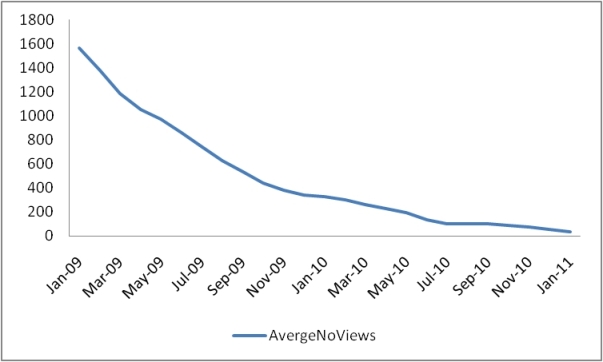In recent months, the rate of new questions being asked on Stack Overflow — 3.1k per day — has been overwhelming. As a result, many questions have low views, a change from the previous year. I think the team must plan some way to balance traffic to new questions.
I know we can use bounties to solve this, but that's not a good long-term solution. We must find some way to categorize new questions better.

